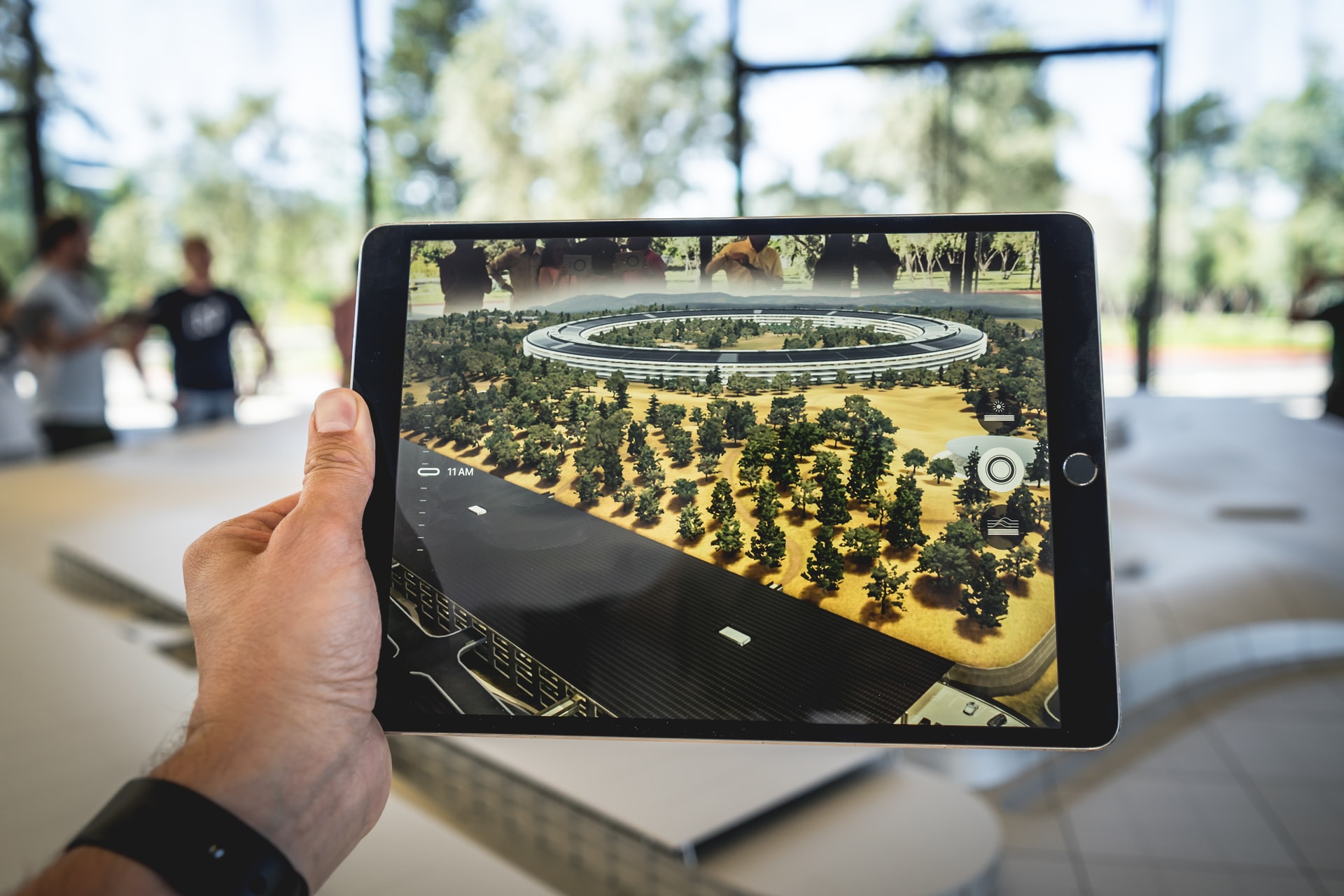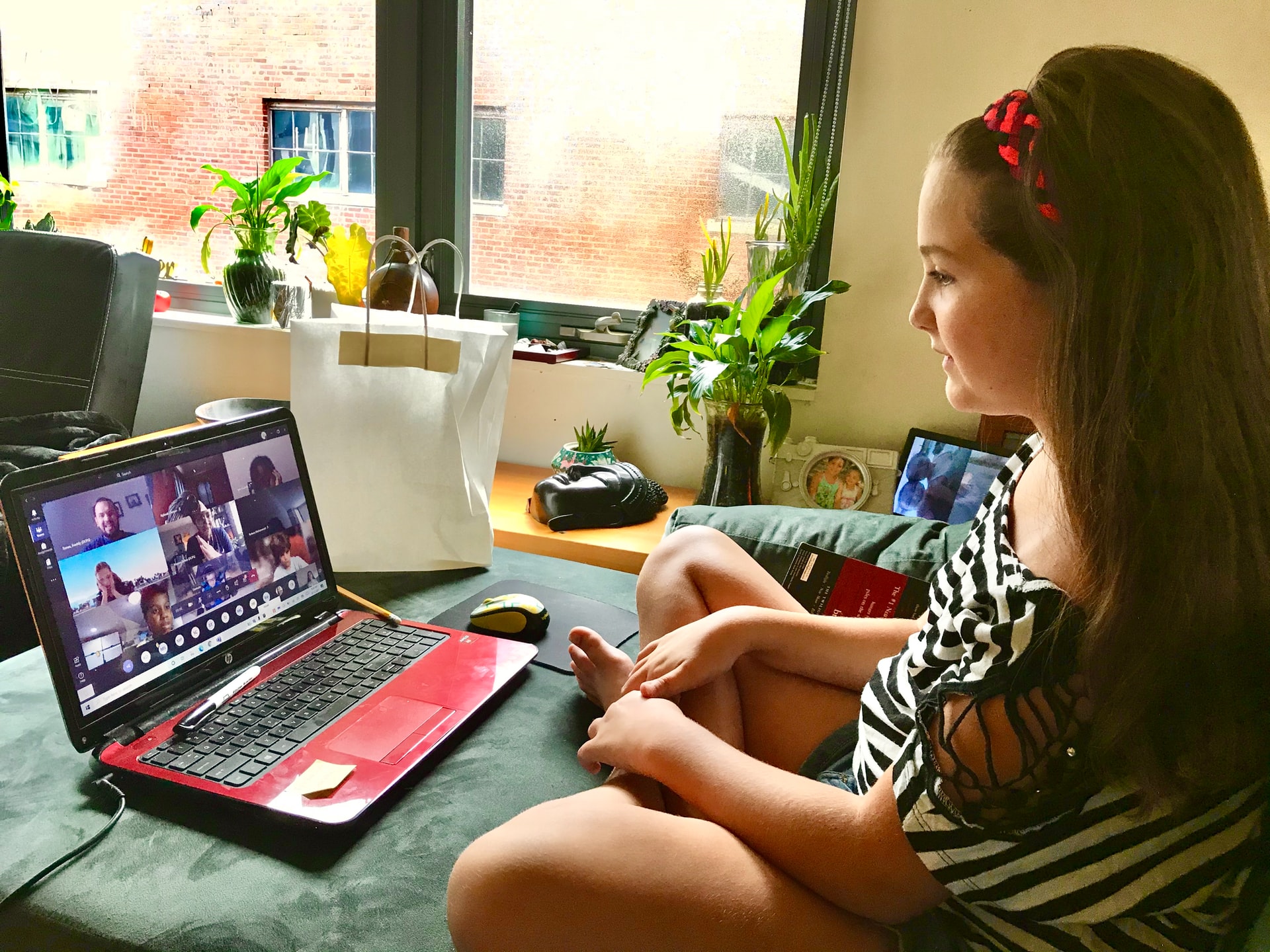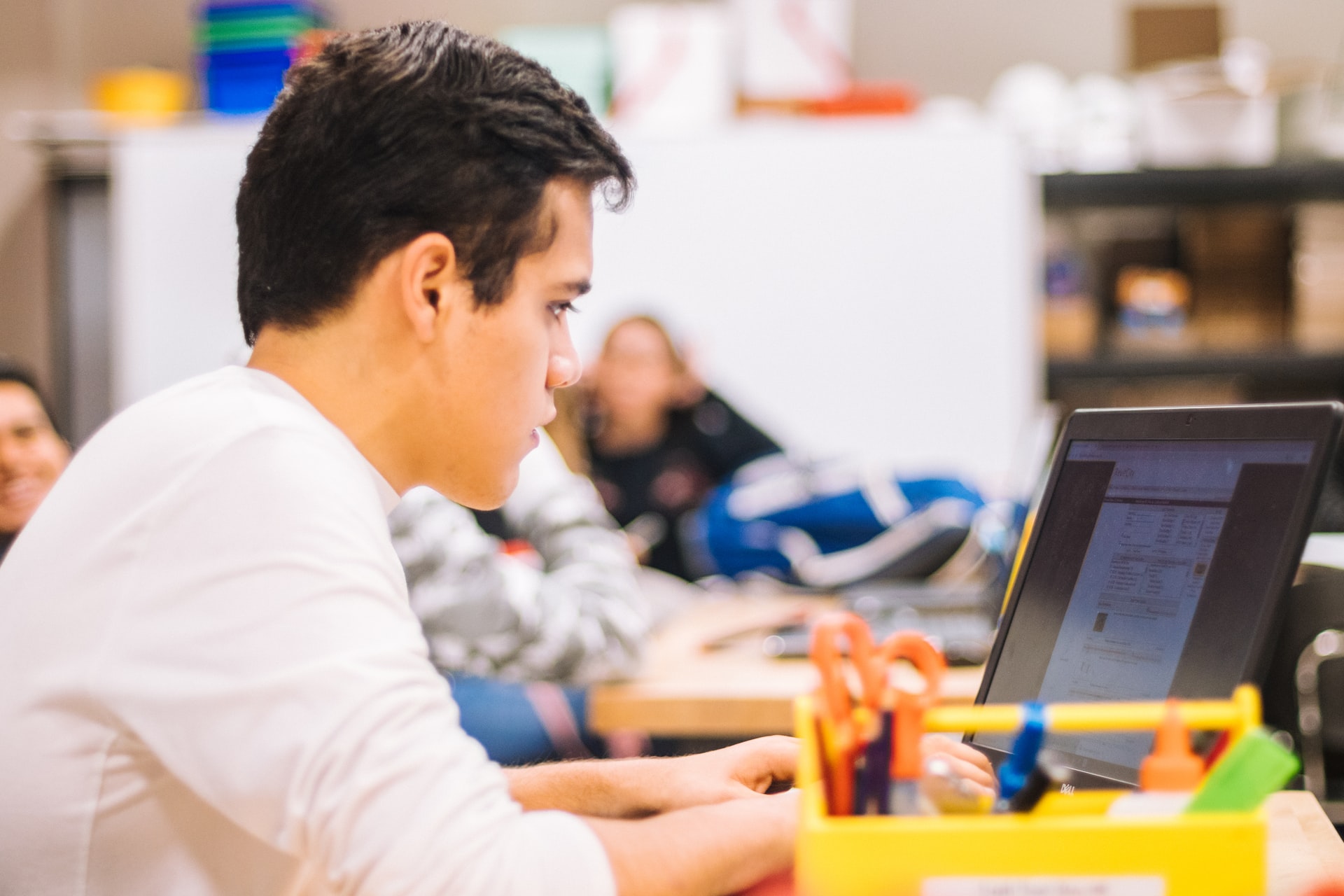Breakout rooms in remote learning: best practices and tips
 Photo by Annie Spratt on Unsplash
Photo by Annie Spratt on Unsplash
The massive shift to virtual learning has surely changed the way educators teach, but also the way students interact in the classroom. After going through several approaches to keep your class engaged, from gamification to flipped learning, let’s take a look at the best practices and tips to get the most out of breakout rooms in remote learning.
- 0 Comments
- Apr 26, 2021 10:00:00 AM
- Posted by Natalia Galvis
- Topics: Math, Math Book, EdTech, STEM, Curriculum, teachers, students, Technology, VR, Realidad Virtual, AR, Edchat, Gendergap, Digital Technology, Augmented Reality, teaching, online, Virtual Reality, virtual learning, lessons
Creating Opportunities for Project-Based Learning in Math
 Photo by Antoine Dautry on Unsplash
Photo by Antoine Dautry on Unsplash
Rigorous PBL units in middle and high school math answer the age-old student question: “When am I ever going to need this?”
Taking the plunge into project-based learning can seem difficult in an age when standardized testing seems to reign supreme as an indicator of achievement in secondary classrooms. But the pathway to project-based learning doesn’t have to be scary for secondary math teachers. Utilizing your own expertise and curriculum materials, you can create projects that are real, relevant, and rigorous, and that answers the age-old question, “When am I ever going to need this?”
- 0 Comments
- Apr 23, 2021 10:00:00 AM
- Posted by Natalia Galvis
- Topics: Math, Math Book, EdTech, STEM, Curriculum, teachers, students, Technology, VR, Realidad Virtual, AR, Edchat, Gendergap, Digital Technology, Augmented Reality, teaching, online, Virtual Reality, virtual learning, lessons
From classroom to boardroom: Building diverse workforce tech talent starts with STEM
By Danielle Rourke & Dr. Kendall Latham
 Photo by Blaire Harmon on Unsplash
Photo by Blaire Harmon on Unsplash
Encouraging more girls to pursue STEM learning and work in STEM fields should start in the early grades.
- 0 Comments
- Apr 22, 2021 10:00:00 AM
- Posted by Natalia Galvis
- Topics: Math, Math Book, EdTech, STEM, Curriculum, teachers, students, Technology, VR, Realidad Virtual, AR, Edchat, Gendergap, Digital Technology, Augmented Reality, teaching, online, Virtual Reality, virtual learning, lessons
Benefits Of Virtual And Augmented Reality For Pre School Education
By Eric Brown

Photo by Patrick Schneider on Unsplash
The new technology has brought a lot of developments in the world. One of the developments is the use of virtual reality and augmented reality. Virtual reality is a computer-generated environment with scenes that makes users feel immersed in that surrounding. One of the perfect examples of Virtual reality is video games. Virtual video games have made CSGO betting for example, even more, popular and fun.
Physical learning is an effective way for young children to get knowledge. However, technology also plays a significant role in the development of young children. Virtual reality can alter behaviors, patterns, attitudes, and thoughts.
Virtual reality prepares children for a world that will be dominated by robots and AI. They will have the required experience to handle the technology that will come their way. Moreover, virtual reality also plays a role in enhancing the lives of children with special needs. It helps them gain the experience they need to know how to operate robots and other technology tools.
- 0 Comments
- Apr 21, 2021 10:00:00 AM
- Posted by Natalia Galvis
- Topics: Math, Math Book, EdTech, STEM, Curriculum, teachers, students, Technology, VR, Realidad Virtual, AR, Edchat, Gendergap, Digital Technology, Augmented Reality, teaching, online, Virtual Reality, virtual learning, lessons
Top Distance Learning Trends: Which Technologies are The Most Popular?
By Karl Murphy
 Photo by Maria Thalassinou on Unsplash
Photo by Maria Thalassinou on Unsplash
Online education is the no hao of the XXI century. Covid-19 has increased the popularity of online learning and teaching. How can teachers and educators overcome the changes using the modern learning trends?
- 0 Comments
- Apr 20, 2021 10:00:00 AM
- Posted by Natalia Galvis
- Topics: Math, Math Book, EdTech, STEM, Curriculum, teachers, students, Technology, VR, Realidad Virtual, AR, Edchat, Gendergap, Digital Technology, Augmented Reality, teaching, online, Virtual Reality, virtual learning, lessons
7 predictions about fall back-to-school with COVID
 Photo by Paul Siewert on Unsplash
Photo by Paul Siewert on Unsplash
Although promising signs indicate the COVID pandemic is becoming more manageable, it's reasonable to expect the back-to-school season to look different.
- 0 Comments
- Apr 7, 2021 10:00:00 AM
- Posted by Natalia Galvis
- Topics: Robotics, About the Robots, EdTech, STEM, Curriculum, teachers, students, Technology, VR, Realidad Virtual, Edchat, Digital Technology, teaching, online, Virtual Reality, lessons, eLearning, Automation, Expeditions 2.0
Two Ways to Bring Games Into Your Classroom
By Hubert Ham
 Photo by Fredrick Tendong on Unsplash
Photo by Fredrick Tendong on Unsplash
Gamification and game-based learning are different instructional strategies, but both can work wonders for student engagement.
- 0 Comments
- Apr 6, 2021 10:00:00 AM
- Posted by Natalia Galvis
- Topics: Robotics, About the Robots, EdTech, STEM, Curriculum, teachers, students, Technology, VR, Realidad Virtual, Edchat, Digital Technology, teaching, online, Virtual Reality, lessons, eLearning, Automation, Expeditions 2.0
5 Ways To Transform How STEM Is Taught In Schools
By Fabricio Pamplona
 Photo by Jeswin Thomas on Unsplash
Photo by Jeswin Thomas on Unsplash
STEM is a crucial part of any student’s curriculum, right from the initial phase of their educational journey. In their formative years, the skills and knowledge gained by students are much more concrete and reflect in the way they approach their professional lives. Considering this, facilitating STEM learning requires educators and students to collaborate so that the learning experience can be successful and goal-oriented.
With the amount of information that students consume today, it is a great challenge for educators to create unique learning experiences. However, with the right tools and technologies, educators can truly create memorable STEM learning experiences that can help students learn and grow.
Here are a few ways in which you can transform how you teach STEM subjects to your students:
- 0 Comments
- Apr 5, 2021 10:00:00 AM
- Posted by Natalia Galvis
- Topics: Robotics, About the Robots, EdTech, STEM, Curriculum, teachers, students, Technology, VR, Realidad Virtual, Edchat, Digital Technology, teaching, online, Virtual Reality, lessons, eLearning, Automation, Expeditions 2.0
10 EdTech trending topics in higher education right now
 Photo by Annie Spratt on Unsplash
Photo by Annie Spratt on Unsplash
The changes set in motion in 2020 offered the world of higher education the chance to explore new opportunities and get a deeper understanding of matters previously only partially uncovered. Technology played a major role in this respect: in fact, with the massive shift to remote and hybrid schedules, EdTech helped completely reshape learning and teaching. The following list features 10 EdTech trending topics in higher education to keep an eye on right now and in the future post-pandemic world.
- 0 Comments
- Apr 2, 2021 10:00:00 AM
- Posted by Natalia Galvis
- Topics: Robotics, About the Robots, EdTech, STEM, Curriculum, teachers, students, Technology, VR, Realidad Virtual, Edchat, Digital Technology, teaching, online, Virtual Reality, lessons, eLearning, Automation, Expeditions 2.0
IoT: future applications in K-12 and higher education
 Photo by Timothy Muza on Unsplash
Photo by Timothy Muza on Unsplash
The Internet of Things (IoT) is a network of interrelated physical objects connected through the internet, which has found several applications in the education world in recent years, from K-12 to higher education.
The purpose of this connection? To put it simply, to exchange and transfer data without requiring direct intervention. IoT has become an integral part of the innovation brought to schools by EdTech in recent years, and even though it is not as widespread as of now, it will soon find its way into more and more institutions in the upcoming years.
- 0 Comments
- Apr 1, 2021 10:00:00 AM
- Posted by Natalia Galvis
- Topics: Robotics, About the Robots, EdTech, STEM, Curriculum, teachers, students, Technology, VR, Realidad Virtual, Edchat, Digital Technology, teaching, online, Virtual Reality, lessons, eLearning, Automation, Expeditions 2.0
Relevant Posts
Popular Posts
Subscribe to Email Updates
-
I Want To Learn MoreADDITIONAL INFORMATION


